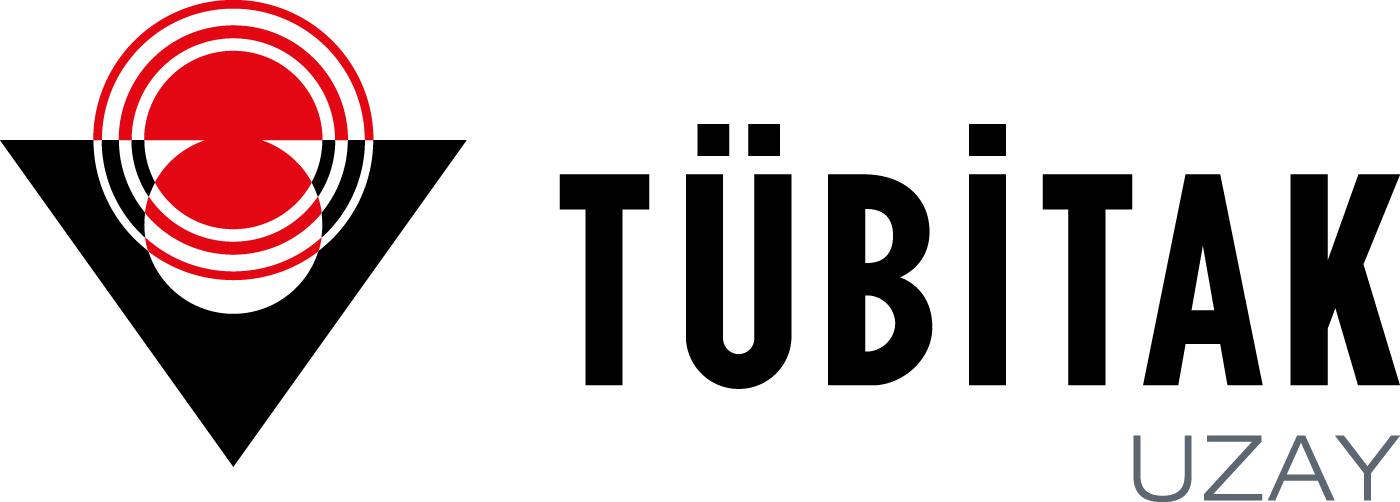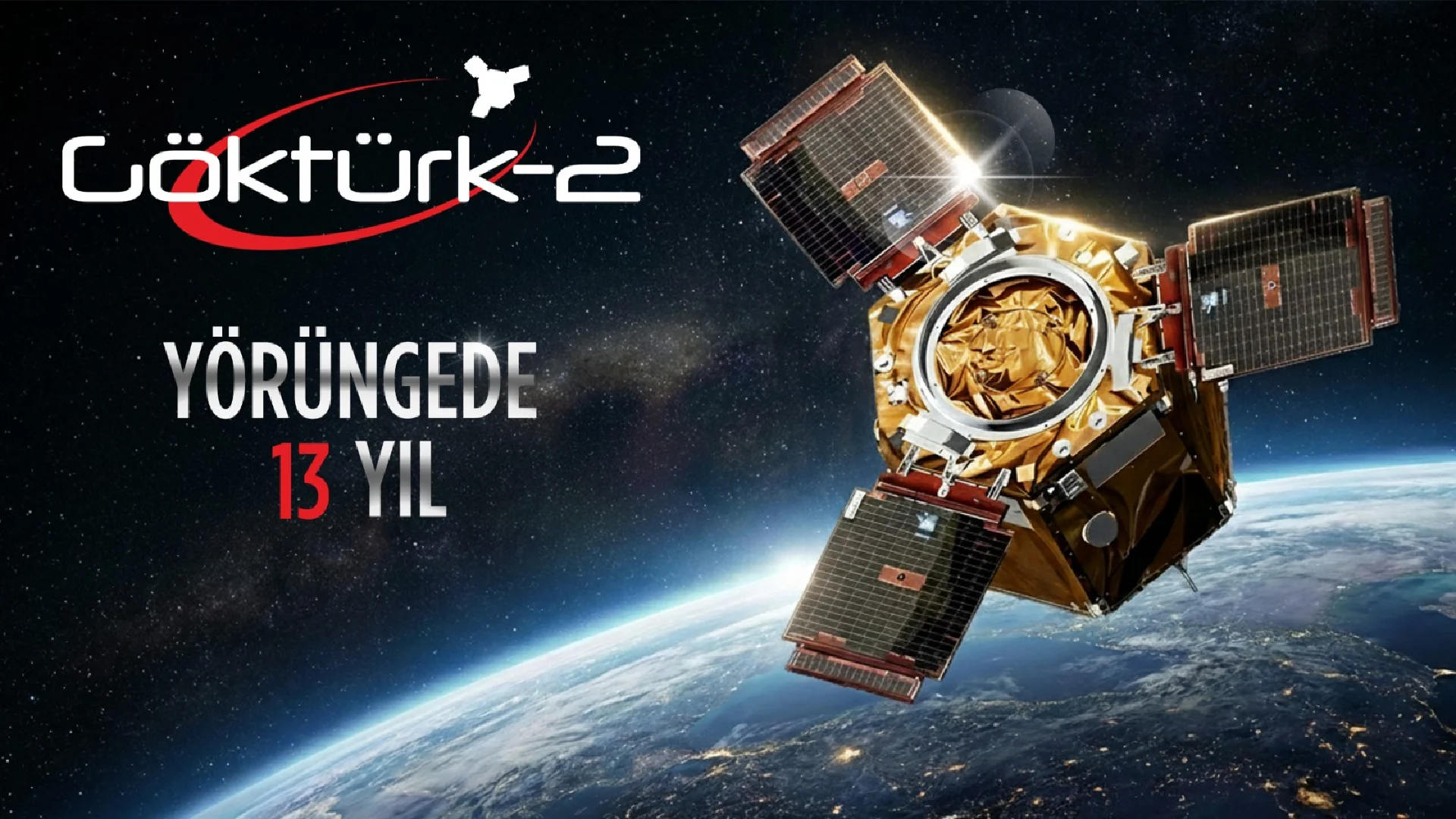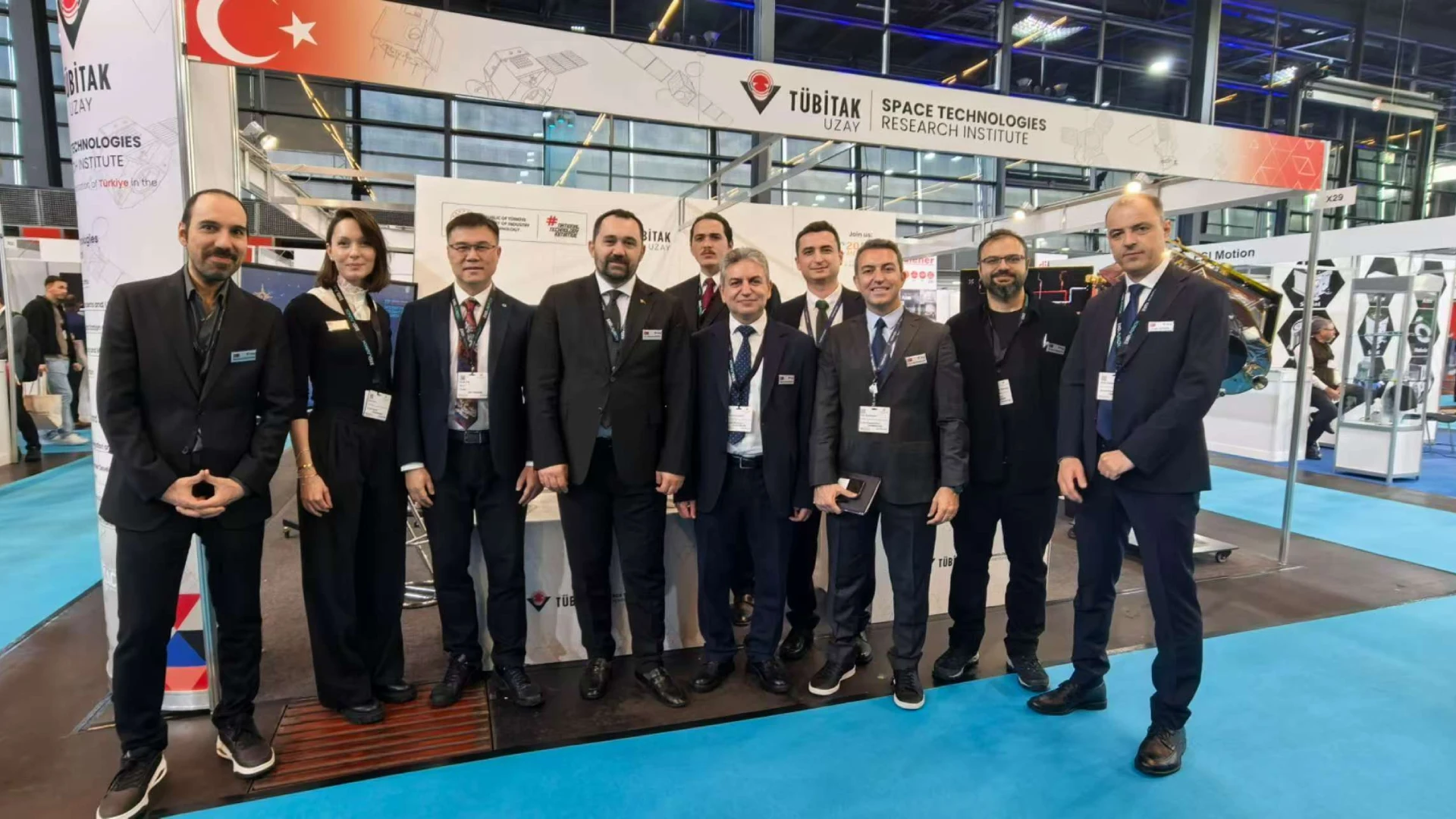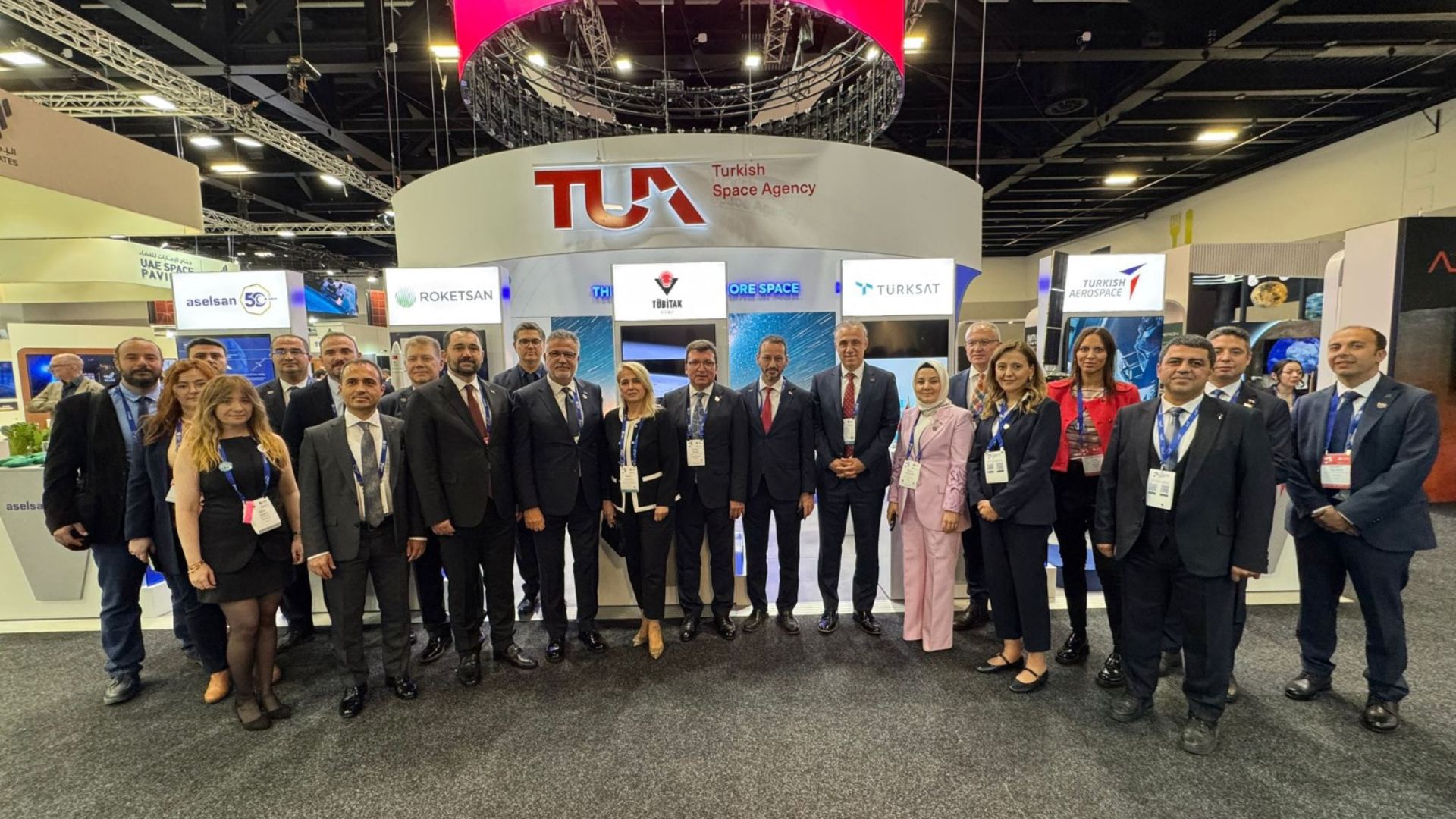At the National Space Program Promotion Meeting held at the Beştepe Millet Congress and Culture Center, the 10 strategic goals were shared with the public.
The National Space Program was introduced by President Recep Tayyip Erdoğan at the Beştepe National Congress and Culture Center. The meeting was attended by Mustafa Şentop, Speaker of the Grand National Assembly of Turkey (TBMM), Vice President Fuat Oktay, Mustafa Varank, Minister of Industry and Technology, Prof. Dr. Hasan Mandal, President of TÜBİTAK, Assoc. Prof. Dr. Mesut Gökten, Director of TÜBİTAK Space Technologies Research Institute (TÜBİTAK UZAY) and many other guests.
In the program prepared by the Turkish Space Agency (TUA) under the leadership of the Ministry of Industry and Technology, Turkey's 10-year space roadmap was announced to the public by the President himself.
"We are determined to be one of the 10 countries that produce communication satellites with their own resources"
President Erdoğan emphasized that the integration process of İMECE, the first domestic and national high-resolution earth observation satellite being developed by TÜBİTAK UZAY, has been completed, and stated that the tests are ongoing and the satellite will be launched into space in 2022.
"We have indigenously developed and produced many critical subsystems such as high-resolution satellite camera, new generation flight computer and software, electric propulsion engine and equipment, steerable antenna, reaction wheel, star trackers, solar sensor," the President said, referring to the equipment and software developed by TÜBİTAK UZAY.
"With the experience we have gained in observation satellites, we are determined to become one of the 10 countries with this capability by producing communication satellites with our own means," Erdoğan said, adding that the first communication satellite, TÜRKSAT 6A, to be produced with domestic and national capabilities, will be placed into orbit in space in 2022.
"We are an International Player Providing Assembly, Integration and Test Services in the Field of Space Systems"
President Erdoğan stated that the program is Turkey's road map in space and said, "We are becoming more competent every day with our space and rocket test centers, space systems design and test laboratories, satellite communication and remote sensing research centers, ground control stations, optical systems research and application infrastructures. We are now an international player in the field of space systems, providing assembly, integration and testing services."
Four important protocols and contracts were signed that will concretize the work carried out with many stakeholders from the public, university and private sectors for the implementation of the announced national space program.
The protocol on "Establishment of a National Satellite Production Company" was signed between TAI, TÜRKSAT and TÜBİTAK under the coordination of the Turkish Space Agency, while the protocol on "Augmented X-ray Timing and Polarimetry Satellite, Wide Area Tracking Application Software Project" was signed between TUA, Sabancı University and TÜBİTAK UZAY.
Strategic 10 Objective
The National Space Program has set 10 strategic goals. The goals announced by President Erdoğan are as follows:
LUNAR MISSION In the 100th anniversary of the Republic, a hard landing on the Moon will be realized with a national and indigenous hybrid rocket that will be launched in near-Earth orbit with international cooperation. In the second phase, the first launch will be made with a national rocket and a soft landing on the Moon will be realized.
DOMESTIC SATELLITE: A commercial brand that can compete with the world in the field of next-generation satellite development will be created. Turkey's satellite production capability will be unified under a single national company to be established under the coordination of the Turkish Space Agency.
REGIONAL POSITIONING: Turkey will develop a regional positioning and timing system. Investments will be made in critical technologies through guided projects.
SPACE PORT A spaceport company will be established to provide access to space. The most suitable launch site and technology for Turkey will be determined. Launch facility infrastructure will be established.
SPACE WEATHER Competence in space will be increased by investing in the field called space weather or meteorology. Especially ionosphere research will be supported. A unit will be established to collect space weather observations.
SPACE OBJECTS Turkey will become more competent in astronomical observations and ground-based tracking of space objects. With radio telescopes, scientists will be able to study radio waves coming from space. Active satellites and space debris will be monitored from ground and space.
SPACE INDUSTRY: Integrated studies will be carried out with the industrial cluster in the field of space. Space technology products and services will be exported. Employment will be created for highly qualified human resources.
SPACE TECHNOLOGY DEVELOPMENT ZONE: Together with METU, a space technology development zone will be established to host domestic and foreign investors. With appropriate incentive mechanisms, SMEs with skills that can be transferred to the space field will be ensured to take part in this zone.
SPACE AWARENESS Space awareness will be created to develop effective and competent human resources in the field of space. Graduate and doctoral scholarships will be awarded in clearly defined fields. National and international summer schools, courses and workshops will be organized.
TURKISH ASTRONaut: A Turkish citizen will be sent into space on a science mission. Thus, Turkey will have the opportunity to conduct scientific experiments by utilizing the infrastructure of the international space station. Turkey's visibility in space will increase.






